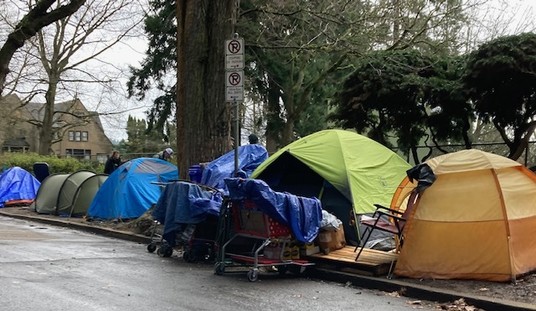For more than a decade, my wife and I have visited Greece every year; in the past 16 months we’ve been there for more than six weeks. We saw the transition from drachmas to euros, and the chaos of preparation for the 2004 Olympics. We’ve seen the damage caused by forest fires and winter ice storms, and marveled at the stunning beauty of the islands and the rugged mainland terrain on which the ancient Greeks laid the very foundations of Western civilization.
We’ve observed first hand the demonstrators who, camped out in Athens for more than two years now, have proven role models for the assorted “occupy” protestors across the U.S. in recent months, and now presumably for Time magazine’s newest Person of the Year.
Yet we’ve also spent many weeks in the Greek equivalent of “flyover country,” listening and looking at the lives of ordinary Greeks as their country is gripped by political and economic crisis. It’s these latter folks, the real people, whose stories are most important today — their experiences both mirror and foreshadow our own here in the United States.
We love Greece. And so, in a way, it pains me to share these observations about daily life in a country where the government has long since doubled down on unsustainable spending complemented by cronyism, corruption, and a pervasive and out-of-control sense of entitlement. Now the party is ending, as it becomes apparent to all — both those who wish it to stop and those who want it to continue, consequences be damned — that the Greek government has, to use Margaret Thatcher’s prophetic phrase, simply run out of other people’s money.
What have ordinary Greeks experienced during this process? How are things working out there, when those who take well outnumber those who make? How does the productive minority feel about the state of affairs? Let me report what I have heard and seen.
The Occupation of Athens
First, let us quickly reconnoiter Athens, whose metropolitan area is home to about half of Greece’s population of roughly 11 million. Constitution Square, or Syntagma, the broad plaza in central Athens, is bordered by the Parliament and the Tomb of the Unknowns at its upper end and by three of the city’s classiest hotels along one side. At the foot of the square, along streets such as Ermou, lies a chic quarter in which fine shopping and upscale offices abound. Nearby, tourists and locals alike stroll to the shops and tavernas of the Plaka, and to the foot of the Acropolis.
For more then two years now, Syntagma has been occupied by protestors. Most call themselves “indignants,” an appellation that reflects their attitude. As with the more recent “occupy” movement in the U.S., these protestors claim allegiance to a variety of unions and left-leaning activist groups. They squat in a scruffy tent city. Their message is mixed, but is essentially a demand for more unsustainable spending. They have an audacious sense of entitlement. Their conduct is marginal at the best of times, frequently flaring into violence and vandalism.
Spray paint is ubiquitous, besmirching the marble steps leading up to the front of the Parliament, the walls and columns of the surrounding streets, and the storefronts in the nearby shopping district. The odor of urine is an unwelcome companion, not just in back alleys but along the sidewalks of major streets near the Parliament and along the walk to Hadrian’s Arch. Windows have been broken, marble walls and columns smashed.
Let’s be very clear about who is being targeted here. The shops that have been trashed are not just the chic brand names one finds in major cities all across Europe. No, these noble protestors have not confined their destruction to icons of wealth and power. They are equally destructive of small religious goods stores and assorted “Mom and Pop” establishments. They disrespect all businesses, small and large, in the same ugly fashion.
The police, union members after all, have done little to prevent the violence and property destruction. And their inaction, as we heard many say, has simply emboldened the thuggish elements among the protestors.
For ordinary Athenians the ongoing “occupation” has had a variety of unpleasant consequences. A young schoolteacher we know shops for her parents; they are afraid to leave their apartment. Other Athenian friends tell us that union thugs sympathetic to the “indignants” frequently intimidate ordinary citizens, whether they are shopping or going to work or simply out for a walk. This is understandable when one considers that the protestors’ goal is to bring everything to a halt. Quite simply, that means disrupting the public’s ability to carry on with daily life. People are told they should have known what would happen, they should stay off the streets.
The disruption, of course, is aimed at more than the general population. The strikes and other unannounced work stoppages cause electricity and water service outages frequently. Many of these are deliberately timed for late afternoon, to maximize discomfort for tourists checking into hotels, for restaurants preparing evening meals (it’s tough to cook and wash dishes without electricity or hot water), for merchants trying to make sales at the peak shopping time of day (electronic cash registers and inventory systems go “down” when the power fails), and so on.
The tourism-based economy has experienced at least two consecutive years of double-digit declines in hotel bookings. Business is bad. And guess what? That kills private sector jobs and shrinks tax revenues.
Moreover, security concerns have led to a number of very visible — not to mention annoying — changes in daily life. Women are warned not to wear expensive jewelry, and to carry their purses carefully, in downtown Athens. Banks in the same area all have “air lock” entrances; that is, customers must enter one at a time, stepping first through an outer door into an enclosed compartment where they are observed and photographed before the inner door opens to admit them to the lobby of the bank.
But this is Athens, the epicenter of the protests. Surely things are more placid in smaller cities and towns. In a sense that is so, for there is less in the way of brazen property destruction going on with the police standing by and watching. Not as much spray paint, not so many promenades that reek of urine. Yet all is not well in Greek “flyover” country. If anything, in the hinterlands one can more readily observe the pernicious effects of the government’s irresponsible policies.
The View from Greek “Flyover Country”
Most of our time in Greece has been spent not in Athens but on an island in the north Aegean. It bears a striking resemblance to the fictional isle in the film Mamma Mia. Getting there requires a healthy drive from Athens or Thessaloniki to a port town, followed by a few hours on a Flying Cat or one of the other passenger ships that ply the Aegean.
Steeply mountainous and heavily forested, the island’s beautiful beaches are complemented by orchards and olive groves along its roads and on its many hillsides. There are modern conveniences of the usual sorts, but inland one can find monasteries and churches that are centuries old, and terrain challenging enough that it provided concealment for resistance fighters during the Nazi occupation. It is not uncommon to see traffic on the country roads blocked by herds of goats.
The permanent population of the island is around 5,000, so it’s really a small town that happens to be in the middle of the Aegean. From our annual visits we know scores of residents, spanning the generations and socioeconomic strata. Over the past couple of years we’ve talked with many of them about the situation in Greece. We’ve learned a great deal from discussions with a diverse group that includes a retired and formerly very successful businessman about 70 years of age, several small business proprietors, and an assortment of locals who work in various restaurants, hotels, and other enterprises.
On the island we’re far from the tear gas and spray paint of the nation’s capital. The wind brings us smells of pine, dill, mountain oregano, and the sea — not the urine and tear gas of central Athens.
Yet, although the pace is slower, we hear echoed some of the same themes sounded by friends in Athens. Chief among them, and often stated with exasperation, is the complaint that “nobody wants to work.” The young adults, it is said, have ambition only for “public function” jobs, which offer (at least before this year!) great security and benefits and are not so demanding as to interfere with going to the clubs at night.
Thus, a small business proprietor we know says he is unable to hire young Greeks when he and his wife want to harvest their olives. As a result, the jobs and the pay go to Albanian immigrants. Incidentally, these are not illegal immigrants (that’s another story and a serious one for Greece). Rather, these are legal immigrants, generally already working at other jobs the local Greeks have spurned. So, the Albanians who “moonlight” picking olives for our friends are doing jobs that could be done by young Greeks on the island.
Similarly, many of the servers and other employees at the local hotels and restaurants are not Greek. Most of them come from other and less affluent Balkan countries. A young woman who supervises the wait staff at a very fine local restaurant tells us she finds this frustrating. Given the local character and cuisine of the restaurant, she would prefer to have a Greek staff. She tells us she cannot find Greeks who want the work, especially with the lure of “public” jobs and government benefits.
Some other friends own a taverna at one of the island’s beautiful beaches. This past summer they told us that the Greek economy is stagnant in part because of overwhelming uncertainty. No one will hire. Employers are paralyzed by uncertainty — about new regulations, new taxes and fees as the result of austerity measures. No one can predict the cost of taking on new employees. People are “depressed” and “feel helpless” about the situation. As a result, they say (while acknowledging that the work ethic is not robust) for those who want to work, “there is no work.”
Another acquaintance, a very successful businessman from Athens who has retired to the island, says frankly that for much of his adult life he was on “the left” and “very anti-American.” Now, however, he confides that if he and others had learned from America in the ‘80s and ‘90s, Greece would be in a different and better place. Of course, he smiles and chides us that we Americans seem not to have learned from the sad experience of Greece in recent years.
A woman we know manages one of the island’s nicest hotels. In her mid-forties, she has had this job since the hotel was built in the early 1990s. She has seen the tourist business on the island up close for almost two decades. These past two years, she says, business has trended downward steadily. Unlike islands such as Mykonos, which has a very high-end clientele largely unaffected by the global recession, the island is a destination for middle-income families and other tourists of relatively modest means. People, in other words, much more likely to forego a vacation because of economic pressures.
She also tells us — and we experienced first-hand — that when strikes shut down electricity and water in Athens, they have the same effect on the island. Worse yet, ferry service is disrupted frequently, snarling schedules and causing a high volume of cancellations. Sometimes the ferry service is stopped altogether and sometimes only partially, as there are different companies operating the vessels and at times strikes will affect some but not all ships. As with air travel interruptions, for the island’s economy any cancellation of shipping is a recipe for chaos.
Of course, the strikes that cause such severe damage to the island’s economy can be traced back to the protestors and politicians in Athens. And the working Greeks in either place, from taxi drivers to storekeepers and lawyers, will say candidly: “We brought this on ourselves. We voted for government programs we could not afford, and now it has caught up with us.” Sadly, this disarming honesty is not on display where it is most needed in Athens, either among politicians in the Parliament or among protestors camped in Syntagma.
The Fruits of Folly
The same Greeks who acknowledge that they are reaping what they have sown also recognize that the road back from fiscal ruin will be long and rugged. It’s almost understandable that many would prefer simply to avert their eyes and somehow keep the good times rolling. But the majority know that the reckoning has arrived.
The power of unions and the disproportionate number of people on the public payrolls will continue to be a major challenge. For a number of years Greece has suffered massive private sector job losses. Yet until the current austerity measures, there were no layoffs of civil servants. The public sector grew even as the private sector, which paid the bills, was shrinking. Now public sector wages and benefits will be slashed, and the public sector workforce will be reduced significantly.
Another challenge will be dealing with the culture of corruption, which pervades the economy and daily life. In Greece, corruption and cronyism clear away obstacles for the politically connected, while ordinary businesses are stifled by onerous red tape and regulation.
Incumbent politicians, from the national level right down to the small towns and island communities, have long had the habit of rewarding their friends and punishing their enemies. This has had lasting and negative ramifications, including pervasive cynicism and massive tax evasion. This did not happen overnight, and changing it will be difficult.
To illustrate, we have heard from numerous acquaintances, both in Athens and on the island, that receiving medical treatment in a timely fashion under the Greek national (i.e., socialized) health care system routinely requires the payment of bribes — cash passed “under the table” in envelopes known as “fakelaki.” Greece thus provides proof of the bumper sticker line: if you think health care is expensive now, just wait until it’s free. From payments for medical office visits and surgery in hospitals, to bribes to tax officials and town planning clerks for building permits, the corrupt “cash” economy has sunk its roots deep.
Add to the list of challenges weaning the population off dependency on government entitlements. Job creation would help, but the very government policies the protestors seek to perpetuate have made economic growth unlikely in the near term. With the GDP shrinking at an annual rate of 5%, unemployment is now almost 20% — and among the young it’s more like 40%.
As in the olive groves on the island, across the country immigrants — many of them illegals — seem to hold more jobs than young Greeks. For many of the latter, the preference for “public function” jobs and dependency on government largesse is persistent. And for the better educated and more ambitious among the younger Greeks, most seek to emigrate. This is not a good combination!
Still, one hopes that the austerity measures will succeed, that Greece will claw its way back economically and cure its culture of chronic corruption. To get from here to there, Greece will have to counter the clout of the unions, replace cronyism with competition, and adopt a simple, compliance-friendly tax system (perhaps a flat tax of the sort enacted by a number of its Balkan neighbors).
These are tall orders, but a country with the rich heritage of Greece should be up to the challenges. And then, one fine day, Greece will again be competitive economically, not only with other European Union member states, but also with its Balkan neighbors and Turkey. We wish them well.









Join the conversation as a VIP Member